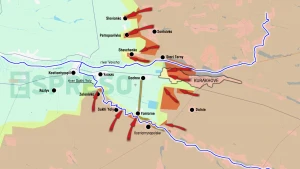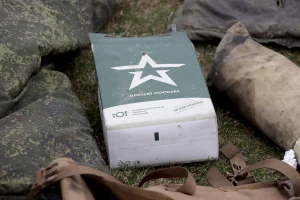
NATO's SACEUR Cavoli calls Russia's response to Kursk operation “slow and scattered”
NATO's Supreme Allied Commander Europe, General Christopher Cavoli, described Russia's response to the Ukrainian operation in Kursk as "slow and scattered”
Supreme Allied Commander Europe (SACEUR) Christopher G. Cavoli made the statements during a conversation with the Council on Foreign Relations (CFR) think tank.
The general noted that Russia was still in the process of piecing together its response to Ukraine's incursion, describing the reaction so far as rather slow and scattered. He suggested that this was partly due to uncertainty within Russia about who held the appropriate authority, pointing out that while the Ministry of Defense was responsible for military actions within Ukraine, it was not in charge within Russia. Therefore, he implied, Russia is figuring out whether the responsibility should fall under the Ministry of Internal Affairs.
According to him, the units that remained in Russia and can confront such a problem are conscripts, who are theoretically and legally prohibited from fighting in Ukraine. Accordingly, these are not the combat units that can be expected to respond quickly.
Ukraine’s cross-border incursion in Russia’s Kursk region
On August 6, the authorities of Russia's Kursk region stated that the Ukrainian Armed Forces allegedly tried to break through the Russian border, but were pushed back. Later, the Russian Defense Ministry reported that "the Ukrainian sabotage and reconnaissance group retreated to its territory.”
On August 7, Kremlin leader Vladimir Putin convened the Russian military leadership to discuss the situation in the Kursk region, which he called a "large-scale provocation." At the time, Russian Foreign Ministry spokeswoman Maria Zakharova called on the international community to "strongly condemn the Kyiv regime's criminal attacks on Russian territory."
On August 10, President Zelenskyy called the operation in the Kursk region “pushing the war into the aggressor's territory.” At night of the same day, the authorities introduced a counterterrorism operation in the Bryansk, Kursk, and Belgorod regions of Russia.
On August 14, it became known that the Ukrainian military had formed a “sanitary (buffer) zone” for self-defense in the Kursk region of Russia. It is planned to open humanitarian corridors for the evacuation of civilians, and if necessary, military commandant's offices will be established in the Russian region.
At a meeting with the president on August 15, Ukrainian Armed Forces Commander-in-Chief Oleksandr Syrskyi said that Ukraine had established the first military commandant's office in the Kursk region to provide humanitarian aid to local residents.
At the same time, Ukraine's Ministry of Reintegration of the Temporarily Occupied Territories, together with the military, is currently working on a possible route for a humanitarian corridor for civilians from Kursk to Sumy.
On August 15, The Independent reported that about 2,000 Russian servicemen were captured during an operation by the Ukrainian Armed Forces in the Kursk region.
- News














































